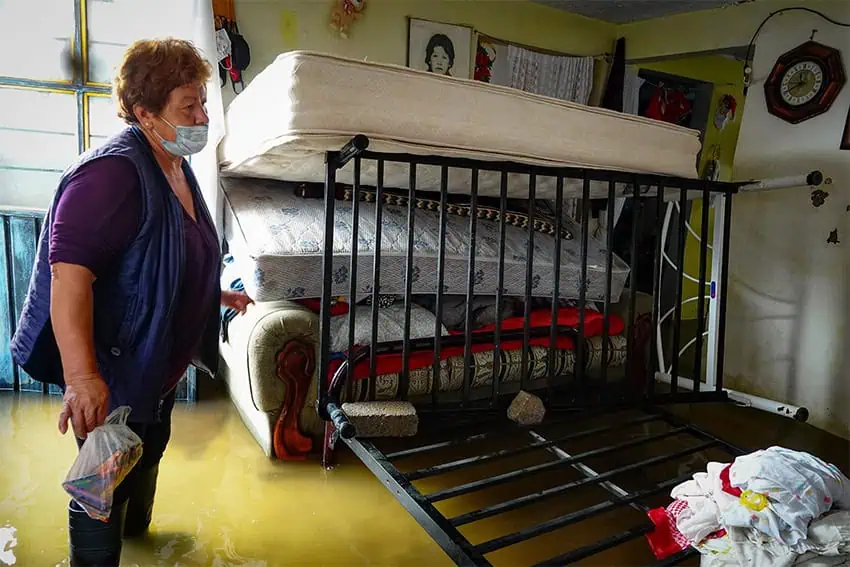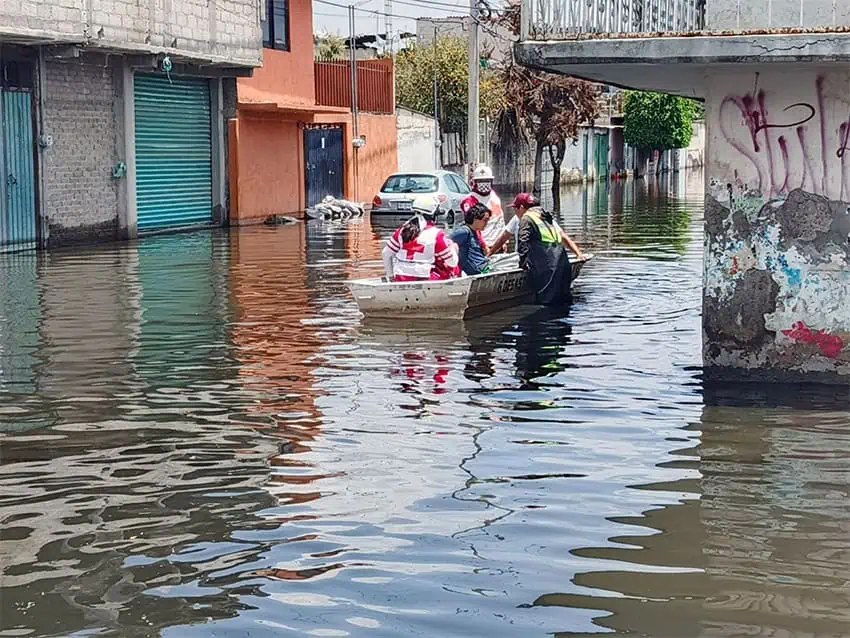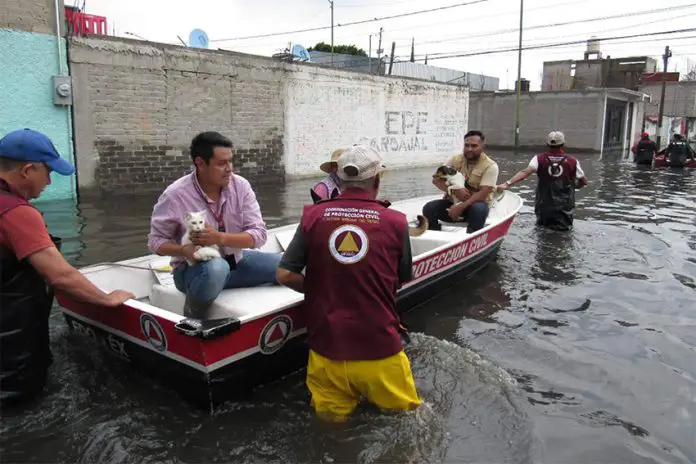For nearly three weeks, thousands of residents in Chalco — a city of 174,700 in the state of México — have been living in dire conditions due to severe sewage flooding triggered by atypical torrential rains.
The ongoing disaster has led to widespread health concerns, forced evacuations and increasing demands for government intervention.
On Wednesday, Mexican Red Cross teams traversing the flooded streets by boat rescued 64 residents from the worst-affected areas — bringing the total number of rescued citizens to over 1,100 so far.
Most of the evacuees were taken to one of four temporary shelters, where showers, basic medical care, food and other essential services awaited them. Wednesday’s operation also included rescuing pets, some of whom had been left without food or water for days.
However, despite living in stagnant, contaminated water for days on end, many of the estimated 3,600 affected residents have refused to leave their homes for fear of looting.
Some of those people are receiving assistance from residents from non-flooded areas who have taken it upon themselves to prepare and distribute hot meals by boat to those trapped in their homes.

“There were 16 children in one building who were so relieved when we brought them food,” one local volunteer, Verónica Urbina, told the newspaper La Jornada. She also said that community solidarity has provided some comfort in the midst of what might escalate into a full-blown public health crisis.
A two-minute news report on the Chalco flooding is available on CNN en Español.
As the situation has grown increasingly desperate, complaints from residents have escalated. During tours of the flood zone, México Governor Delfina Gómez Álvarez has been confronted by people irate over a perceived lack of action by state and federal authorities.
Mayor José Miguel Gutiérrez, like Gómez a member of the Morena party, has urgently called for a state of emergency to be declared.
“There is already a risk of diseases due to stagnant sewage, and the situation is only worsening,” Gutiérrez said in a radio interview with journalist Joaquín López-Dóriga. “It’s a catastrophe,” he added, noting that the water level has dropped at times, but then “it rains on us and raises the water level again.”
Additionally, he stressed the need to replace a 30-year-old sewage system that has a garbage trap, which prevents flood waters from receding.
The most affected neighborhoods are Culturas de México, San Miguel Jacalones and Emiliano Zapata. All abut the center of the city also known by its formal name of Chalco de Díaz Covarrubias, which is about an hour’s drive from Xochimilco in southern Mexico City.

Angry residents this week loudly slammed the doors of a building where Governor Gómez was meeting with authorities about the flooding in Chalco. Other residents blocked a portion of the Mexico-Cuautla highway on Tuesday.
And according to the newspaper El Financiero — quoting what residents have told reporters and written on social media — the military members and state police sent to the area to help “are not doing anything.”
“The state police are only on their phones and eating,” El Financiero quoted people as saying. “When people bring us food, the state and municipal police come to eat.”
Mexico’s National Water Commission (Conagua) issued a press release on Thursday noting that it has “deployed specialized personnel and equipment to help eliminate the three blockages [of the drainage system] caused by the accumulation of garbage.”
It’s a job that “exceeded the capacity of municipal and state teams,” the release added.
Conagua also said that it and other agencies are dredging some areas, clearing other drainage ducts, pumping water from affected areas and reinforcing eroding river banks.
With reports from El Financiero, La Jornada and López-Dóriga Digital
